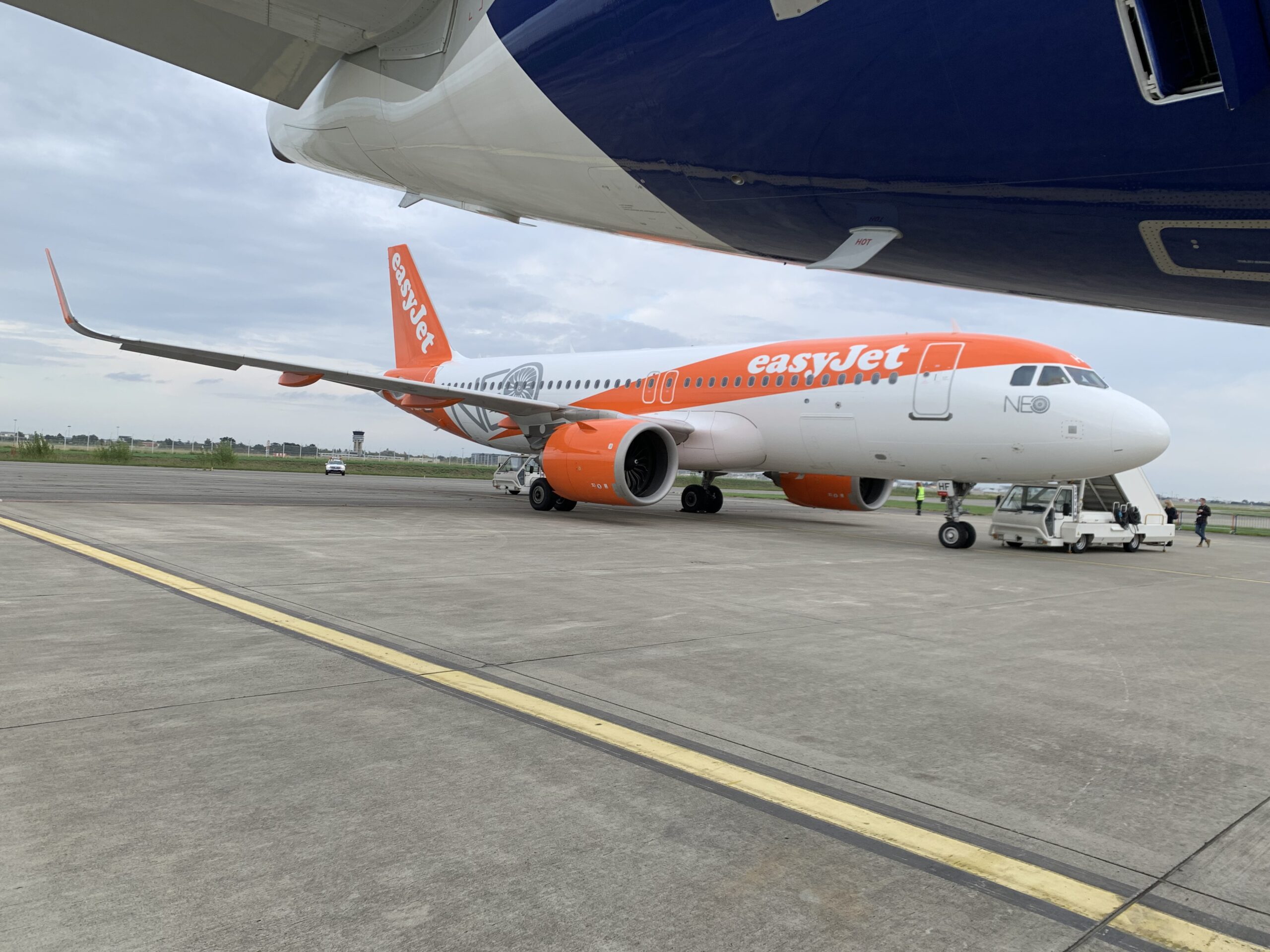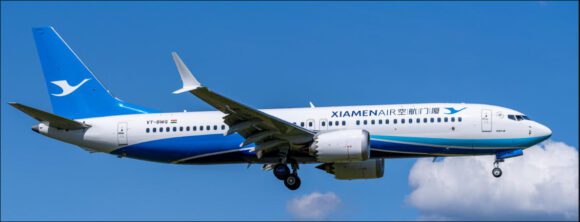
IMG 9242 scaled
Difficulties in the supply chain are holding up deliveries at Airbus, notably that of the A320neo family. But these issues are not systemic and are not having an effect on the planned production ramp-up, President and CEO Guillaume Faury said during the Q3 results press conference on October 28. He admitted that there were difficulties in September. Supply chain issues are holding up Airbus.
Airbus delivered 20 A320neo’s and just nine A321neo’s in September plus one A320ceo, or 30 in total. This compares to 33 combined deliveries in August and is a far cry from the 43 per month that was planned for Q3, which should go to 45 in Q4.
Faury wasn’t willing to share details on the current rate, but he admitted that suppliers are suffering from various issues: “We all observe tensions in the supply chain. After fifteen months of stable rates at Airbus, we are now in the ramp-up and see all the difficulties as we move from hibernation to back to business. When we look at ourselves, we don’t see systemic issues. We had a difficult September, but we think we can manage.”
Faury said he isn’t in a position to say which specific suppliers or parts like engines or cabin parts are being affected by the problem. “It’s really here and there for underlying reasons, including hiring and rehiring staff that needs to be trained, difficulties with logistics around the world. I don’t think it would be appropriate for me to single out some suppliers or some sectors.”
“We observe as well labor shortages around the world, but at Airbus, we are not suffering from this at the moment. We used furlough or temporarily reduced working hour schemes to keep our labor force and we actually start to hire again, which is very good news.”
Reaching rate 65 for the A320neo still very much the plan
While the supply chain issues are holding up the production right now, Faury stressed that they are not affecting Airbus’ plans to ramp up production in the coming years. Reaching 65 per month for the A320neo family by the summer of 2023 is still very much the plan. “With the A320, we are in the ramp-up. We are managing a number of difficulties, but we keep our plan. We are very committed to delivering this ramp-up. I can confirm that the demand more than supports the ramp-up plan.”
Airbus is still assessing if and how it can further ramp up A320neo production rates to 70 or even 75 per month from 2024, as it laid out in its strategy last May. In August, Pratt & Whitney and Safran questioned the feasibility of these rates. “We know there are a lot of views on this, but we have our own views that the demand supports rate 75 but we need to look at the supply chain situation. We are not yet there.”
The recent commercial success of the A330neo, specifically the direct order from Condor for seven and nine leased, gives Airbus the confidence to ramp up production of the type from two to almost three per month at the end of 2022. But it’s not just the Condor order, there is also more to come, said Faury: “Part is in the order book and part in front of us.”
Likewise, the rate of the A350 will also go up again, from ‘around five to around six per month in early 2023’. The reopening of long-haul traffic bodes well for the wide-body market, but Airbus remains cautious: “There is a sense of acceleration, but we don’t expect to get back to 2019 levels before 2024 or 2025.”
The A220 will go from the current five per month to six in early and to fourteen around 2025, in line with previous announcements.
Nine month’s profit of 2.6 billion
Airbus Group announced a €404 million Q3 profit compared to a €767 million loss last year. Adjusted EBIT was €666 million versus €820 million, reported EBIT €710 million versus €-626 million. Revenues between June and September were €10.518 billion compared to €11.213 billion.
For the nine-month period, Airbus reported a €2.635 billion profit (€-2.686 billion last year), and an Adjusted EBIT of €3.369 billion (€-125 million). The reported EBIT is €3.437 billion (€-2.185 billion) and includes €190 million related to the termination of the A380 program, of which €45 million was booked for Q3. Another €165 million is related to the dollar pre-delivery payment mismatch and balance sheet evaluation, although Q3 delivered a positive result of €5 million. Other adjustments including compliance costs were a positive €43 million. Revenues of €35.155 billion compared to €30.161 billion last year. “The nine-month results reflect a strong performance across the company as well as our efforts on cost containment and competitiveness”, said Faury. in the first six months, Airbus Group reported a €2.231 billion profit.
Commercial Aircraft produced an Adjusted EBIT in Q3 of €448 million (2020: €666 million), reported EBIT of €502 million (€-591 million), and revenues of €6.805 billion (€7.738 billion).
For the January to September period, Adjusted EBIT was €2.739 billion (€-641 million), reported EBIT €2.889 billion (€-2.399 billion), and revenues of €24.618 billion (€20.271 billion).
Net order intake for the year to date is much lower than 2020: 133 compared to 300 orders for the same period last year. Gross orders were 270 versus 370 last year. Despite the recent supply chain issues, Airbus delivered 424 aircraft so far this year compared to 341 last year. Its guidance for this year, which was already revised upwards to 600 in June, remains unchanged.
Consolidated free cash flow before mergers and acquisitions, and customer financing improved significantly to €2.260 billion from €-11.798 billion. By the end of September, Airbus has €6.733 billion in net cash, up from €4.312 billion by the end of December. The gross cash position was €21.7 billion.
Views: 6



